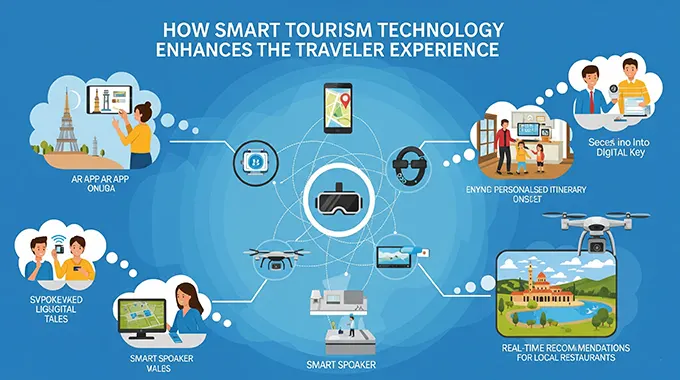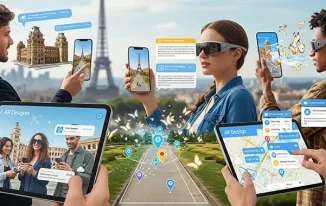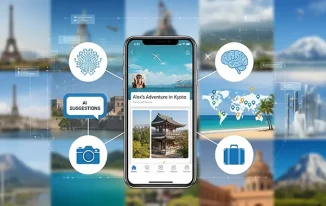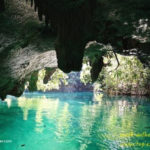The travel industry has undergone a remarkable transformation, driven by the integration of smart tourism technology. From AI-powered recommendations to immersive augmented reality (AR) experiences, these innovations are reshaping how travelers explore destinations and interact with their surroundings. This article delves into how smart tourism technology enhances the traveler experience, making trips more personalized, efficient, and unforgettable.
Personalized Travel Recommendations
Smart tourism technology leverages artificial intelligence and data analytics to provide tailored travel suggestions. By analyzing preferences, past trips, and real-time data, intelligent platforms recommend destinations, attractions, and activities that align with each traveler’s unique interests. This personalization ensures visitors discover experiences that truly resonate with them, avoiding generic tourist traps.
Seamless Itinerary Planning and Management
With smart apps and platforms, travelers can effortlessly plan, modify, and manage their itineraries. Features like automatic booking confirmations, real-time updates on flight statuses, and notifications about local events help travelers stay informed and organized. This reduces travel-related stress and allows tourists to focus more on enjoying their journey.
Enhanced Navigation and Accessibility
Smart tourism technology integrates GPS and AR to facilitate easy navigation in unfamiliar places. Interactive maps and AR overlays guide travelers to points of interest, restaurants, and transportation hubs with ease. Moreover, technologies like real-time translation apps and accessibility tools ensure inclusivity, enabling travelers of diverse backgrounds and needs to explore comfortably.
Immersive Cultural Experiences
Technologies such as virtual reality (VR) and augmented reality offer immersive ways to experience local culture and history. For instance, AR apps can bring historical landmarks to life with interactive storytelling, while VR allows potential travelers to preview destinations before booking. These experiences deepen engagement and enrich the overall understanding of a location’s heritage.
Efficient Resource Management and Sustainability
Smart tourism technology also benefits destinations by promoting sustainable travel practices. IoT sensors and data analytics monitor tourist flows, helping manage overcrowding and reduce environmental impacts. Additionally, apps can guide travelers towards eco-friendly options, such as green accommodations and local businesses, fostering responsible tourism.
Instant Communication and Support
Chatbots and AI travel assistants provide instant, around-the-clock support for travelers. Whether answering queries, managing bookings, or offering emergency assistance, these tools improve accessibility to information and services, enhancing traveler confidence and satisfaction.
Smart tourism technology profoundly enhances the traveler experience by offering personalized recommendations, seamless planning, immersive cultural interactions, and sustainable options. These advancements not only make travel more enjoyable and efficient but also promote responsible exploration that benefits both tourists and host communities. As technology continues to evolve, smart tourism promises to unlock new possibilities, making every journey more meaningful and memorable. Embracing these innovations is key for modern travelers seeking authentic and enriched travel experiences.













